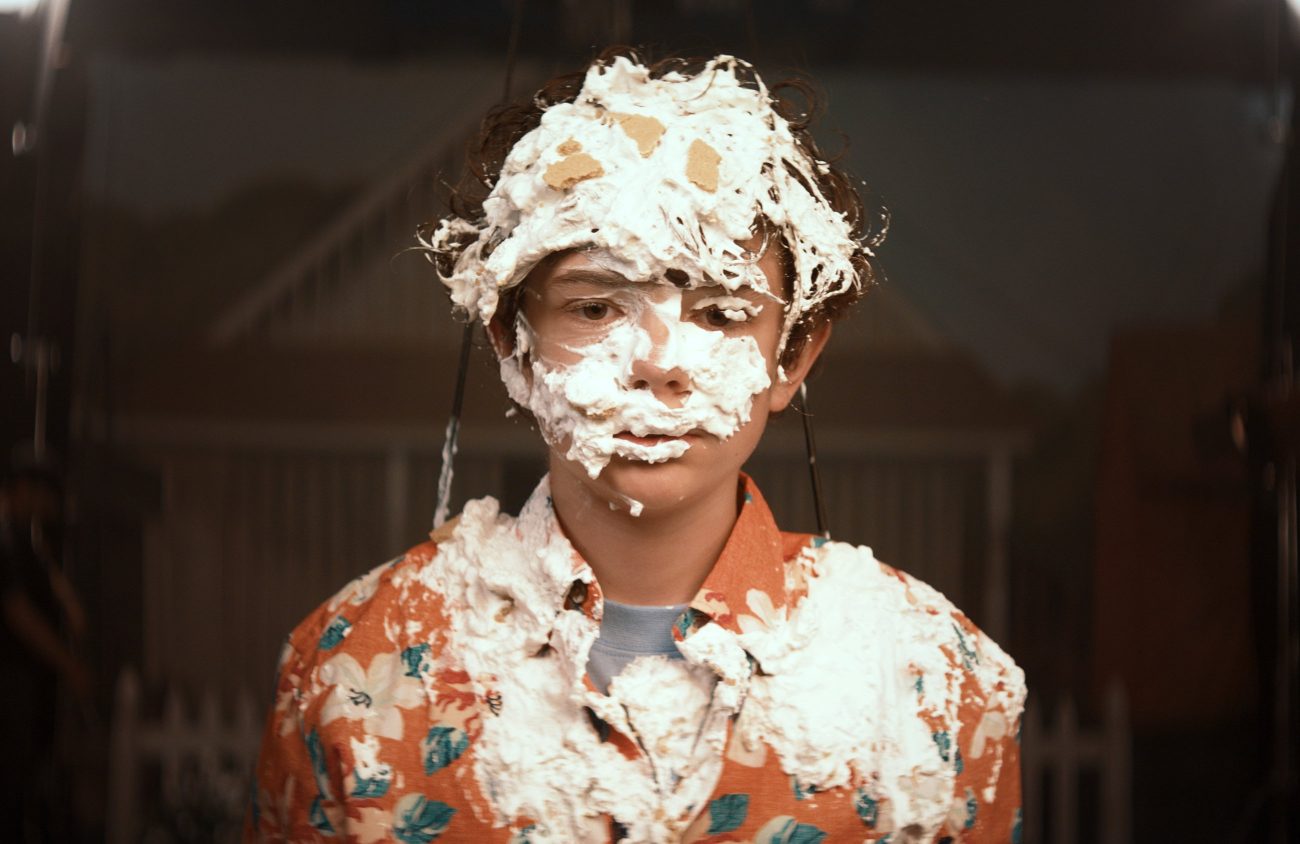How is it, exactly, that Shia LeBeouf has become the most interesting person in Hollywood?
For me, the transformation happened seemingly overnight, and I can put my finger on a trio of revelatory moments, all of them arriving in rapid succession.
The first was this year’s sleeper surprise, The Peanut Butter Falcon, a gritty but abundantly good-natured buddy movie that earned its warm fuzzies the old-fashioned way — honestly and earnestly, with an unsentimental approach to its characters that mined humor and heartbreak with oddball authenticity. The movie is buoyed by LeBeouf’s impeccable turn as a classic American type: the jaded, down-on-his-luck outsider with a heart of gold.
The second moment was LeBeouf’s appearance on Hot Ones — a YouTube web series in which the host, Sean Evans, and a celebrity guest converse over a meal of increasingly spicy chicken wings. Into this already brilliant format LeBeouf brought just the right amount of disarming charm, ironic chutzpah and emotional candor. While sweating the skyrocketing Scoville scale, LeBeouf presented an organic vision of anti-celebrity that at once affirmed and mocked his status.
Finally, there is Honey Boy. Directed with a light but confident touch by Amal Har’el, the film is a fictionalized autobiography based on LeBeouf’s childhood and his aggrieved, wildly dysfunctional relationship with his father. LeBeouf wrote the screenplay while in rehab, and, in a wonderfully Freudian twist, he plays his own father in the movie.
Honey Boy takes the wonky, jagged form of the drama that birthed it. Hypnotic and tragicomic, it is more tone poem than a narrative film. It plays fast and loose with time as we follow 22-year-old Otis (Lucas Hedges) in recovery as he works through memories of his 12-year-old self (Noah Jupe), a child star being managed, bullied, leaned on and emotionally manipulated by his father, James Lort (LeBeouf), a recovering alcoholic and ex-rodeo clown with bad parental boundaries and a criminal past.
Shacked up in a fleabag motel, Otis and James shuttle back and forth from the movie set, living an itinerant life of vending machines, cigarettes and loud neighbors, including a shiftless young woman (FKA Twigs) with whom Otis forms a touching bond. A broken man barely maintaining his sobriety, James manages his son’s career with unhinged emotionalism, equal parts tyrant, buddy and scold. It’s hard to tell who’s parenting whom — who’s the adult and who’s the child.
In one scene, James mocks the potency of his son’s penis with locker room banter; in another, he weeps in self-pity, asking Otis how he thinks it feels to be bankrolled by his own son. Otis, for his part, desperately yearns for normality, for a real childhood, all the while trying to simultaneously please his father and hold him together. In psychological terms, this is called emotional incest, but there’s nothing clinical here about its portrayal.
The older Otis, led through treatment for his PTSD by Dr. Moreno (Laura San Giacomo), reflects on these scenes with a paralyzed rage, incapable of breaking free from the traumas that feed his own self-destructive tendencies. Yet, for all that trauma and victimization, the story never falls into easy recrimination or handwringing. Far from it.
Neither is the film depressing, which is part of the magic of its telling. Yes, it’s hard to stomach at times, but it’s also exhilarating to see an artist confront his past and to do so with such clarity and balance. The cast is great all around, but LeBeouf’s unflinching portrayal of the “bad” dad — a scared, proud man struggling for a foothold, for relevance, as he is overcome by his own demons — takes Honey Boy to another level altogether. He neither demonizes nor excuses parental neglect. He looks at it unflinchingly, showing it for what it is, and in that is a kind of redemption.
I can’t imagine what sort of emotional reckoning, not to mention courage and risk, was involved for LeBeouf to bare his soul — and his family’s past — with such raw vulnerability, but the results are invigorating. It’s not a perfect movie, but I don’t think it tries to be. As they say in recovery, the goal is progress, not perfection, and this film captures that with something nearing grace, even love.
